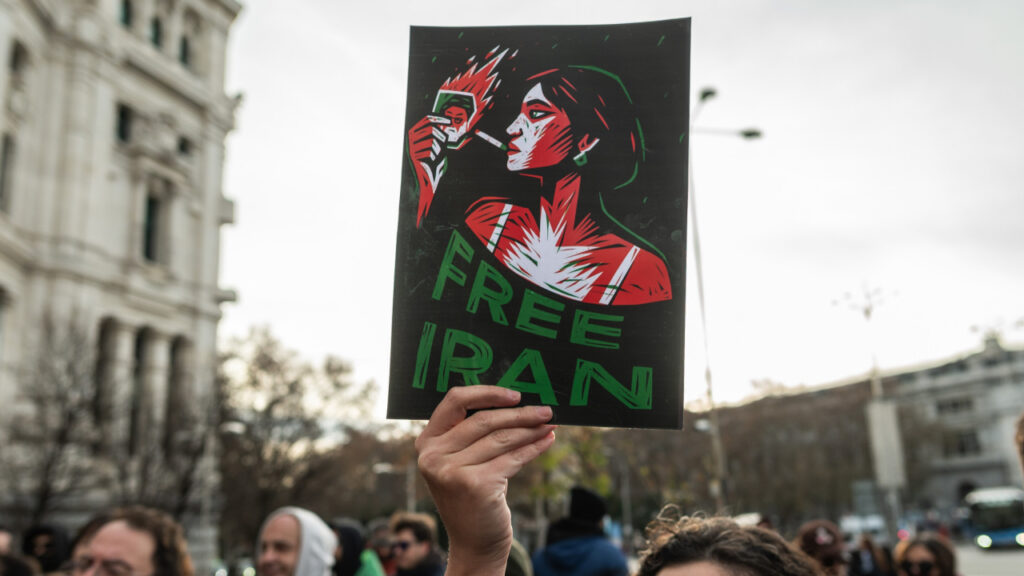
Alicia Villarreal Made the Domestic Violence Signal On Stage—Hours Before Abuse Allegations Broke
During a concert in Zitácuaro, Michoacán, Alicia Villarreal made a gesture that has sparked serious concern among her fans. As she wrapped up her performance on February 16, Villarreal raised her hand, tucked her thumb into her palm, and closed her fingers over it—a universally recognized ‘Signal for Help’ used by domestic violence victims.
According to Tejano Nation, this alarming gesture comes amid reports that Villarreal’s husband, musician Cruz Martínez, is under investigation for alleged domestic violence. Mexican media outlets, including People en Español and Telemundo, have reported that an altercation between the couple on February 15 resulted in Villarreal seeking medical attention at a hospital in Monterrey.
Organizations created this distress signal during the COVID-19 pandemic. Since then, survivors adopted it to discreetly alert others of domestic violence situations. By using it in such a public setting, Villarreal may have been signaling her need for help on one of the biggest platforms she has—her audience.
What happened between Alicia Villarreal and Cruz Martínez?
The allegations of domestic violence surfaced shortly after multiple sources, including kkam.com and Infobae, reported that Villarreal had filed a formal complaint against Martínez.
Furthermore, journalist María Luisa Valdés Doria of Multimedios told Milenio that an argument between the couple turned violent right after the concert, during the early hours of February 17, escalating to the point where Martínez allegedly attempted to strangle Villarreal. Reports indicate that she managed to escape and seek help, ultimately leading her to file a legal complaint.
Following the reported assault, a police presence was stationed outside their home in Monterrey, as confirmed by Infobae. Additionally, sources cited by Univision claim that an order of protection has been issued against Martínez, restricting his contact with Villarreal.
So far, neither Villarreal nor Martínez has made public statements addressing the allegations.
How the ‘Signal for Help’ works and why it’s crucial
The ‘Signal for Help’ is a simple hand gesture that was developed by the Canadian Women’s Foundation in 2020 as a silent distress signal for domestic violence victims. It has since been recognized worldwide and has saved multiple lives.
The gesture is particularly effective in situations where verbal cries for help could put a victim in further danger. The signal consists of:
- Raising one hand with the palm facing outward.
- Tucking the thumb into the palm.
- Folding the remaining four fingers over the thumb.
This sequence symbolizes someone being trapped and is meant to be recognized by others who can step in to help or alert authorities.

A history of struggles: Villarreal and Martínez’s rocky marriage
The relationship between Alicia Villarreal and Cruz Martínez has been under scrutiny for months. In July 2024, reports surfaced that Martínez had allegedly been unfaithful, prompting Villarreal to confirm that they were in the process of divorce.
According to Telemundo, Villarreal publicly stated, “Divorce is not just a paper. It’s a process.” While she acknowledged difficulties in her marriage, she had not previously spoken about any incidents of domestic violence.
Their separation was widely discussed in Mexican and U.S. media, with sources such as People en Español reporting that Villarreal was navigating her personal life while continuing her musical career. However, the recent allegations of abuse and her use of the distress signal have reframed public concern about her safety.
Domestic violence in the Latino community: Breaking the silence
Alicia Villarreal’s silent plea is part of a much larger issue—domestic violence remains a significant concern in Latino communities.
In Latin America, gender-based violence is often underreported due to cultural stigmas, fear, and economic dependence. Additionally, traditional gender roles and expectations have made it difficult for some survivors to speak out or leave abusive relationships.
Organizations such as Casa de Esperanza and the National Domestic Violence Hotline work to provide culturally competent resources to survivors. Raising awareness about the ‘Signal for Help’ and other forms of assistance is crucial in protecting those at risk.
Where to seek help if you or someone you know is in danger
If you or someone you know is experiencing domestic violence, resources are available to help.
- The National Domestic Violence Hotline: 1-800-799-SAFE (7233) or www.thehotline.org for confidential online support in English and Spanish.
- Latina-specific support services: Casa de Esperanza offers resources tailored to the Latino community (www.casadeesperanza.org).
- In an emergency, call 911 or your local emergency services.
Alicia Villarreal’s bravery in making the ‘Signal for Help’ has brought this urgent issue into the spotlight. Recognizing the signs, supporting survivors, and spreading awareness could help save lives.




